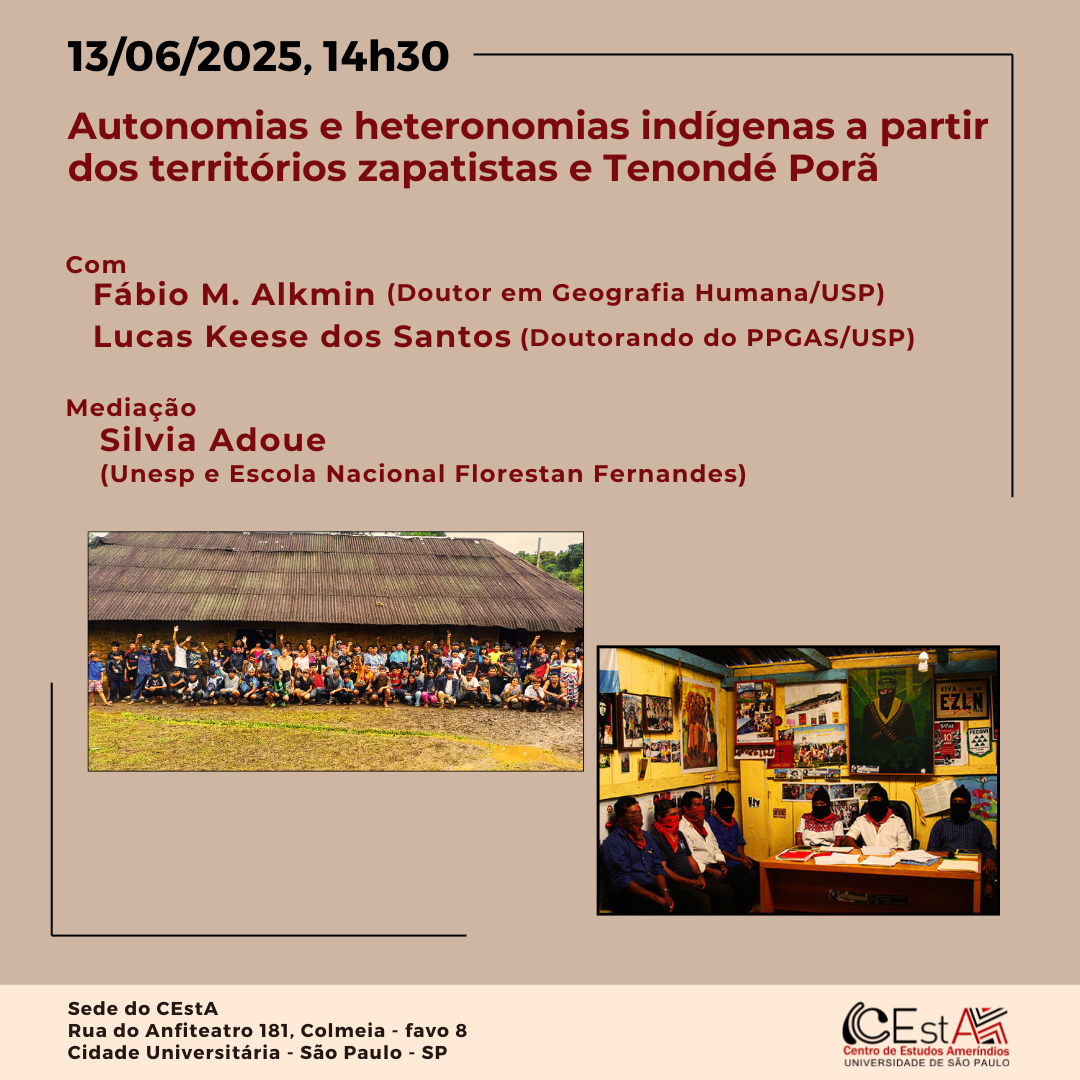Based on the experience of Zapatista territories in Chiapas, Mexico, the presentation addresses indigenous autonomy as dynamic processes of territorialization and creation of their own forms of sociopolitical organization. In dialogue with other Latin American experiences, we will reflect on how the Zapatistas (re)construct, on a daily basis, autonomous spaces in opposition to the processes of heteronomy imposed by the State and capital.
With
Fábio M. Alkmin (PhD in Human Geography/USP)
Lucas Keese dos Santos (PhD student at PPGAS/USP)
Mediation: Silvia Adoue (Unesp and Escola Nacional Florestan Fernandes)
Suggested reading:
https://editoraelefante.com.
https://www.teses.usp.br/
Fábio M. Alkmin
Geographer, master and doctor in Human Geography from USP, with a career focused on research on indigenous territorial autonomy processes in Latin America. He is the author of the book Geografia da Autonomia (Editora Elefante, 2025) and is a member of international research networks, such as the DATALUTA Network (Brazil) and the GT Pueblos indígenas, autonomías y derechos colectivos of CLACSO.
Over the past twelve years, the Tenondé Porã Indigenous Land, located in the far south of the city of São Paulo, has grown from just two to 16 villages. In a context of struggle for demarcation, territorial redispersion and the resumption of megadiverse traditional crops, these new Guarani communities have dissolved the figure of the chief in favor of a council of leaders. Based on this scenario, and in dialogue with other experiences of indigenous autonomy, we propose a reflection on the notions of autonomy and heteronomy, not only in relations with the State and the non-indigenous world, but also within a territory shared by multiple subjects.
Suggested reading:
https://teiadospovos.org/
https://www.revistas.usp.br/
Lucas Keese dos Santos
Indigenist and PhD student in social anthropology (PPGAS-USP). He has worked with the Guarani
Mbya since 2009. He followed the movement for the reoccupation of the Tenondé Porã Indigenous Land from 2013 onwards and currently lives in the same territory, in the Kalipety tekoa. He is the author of the book “A esquiva do xondaro – movimento e ação política guarani mbya” (Elefante, 2021).


